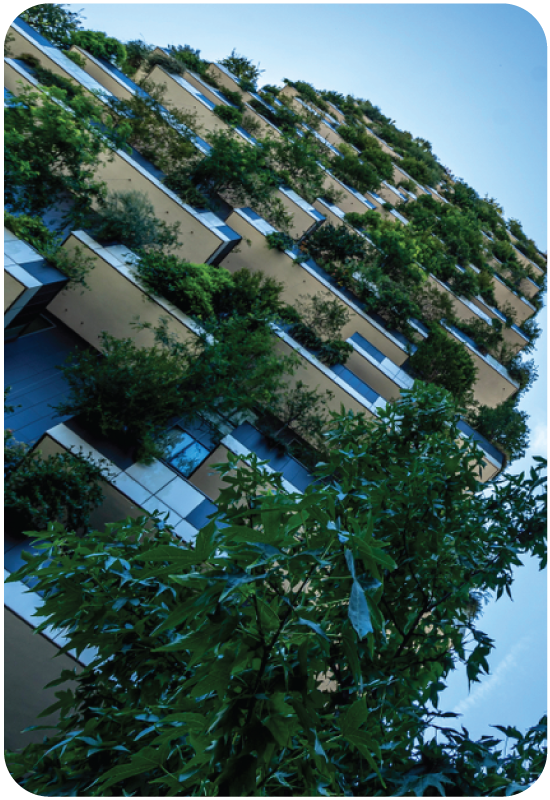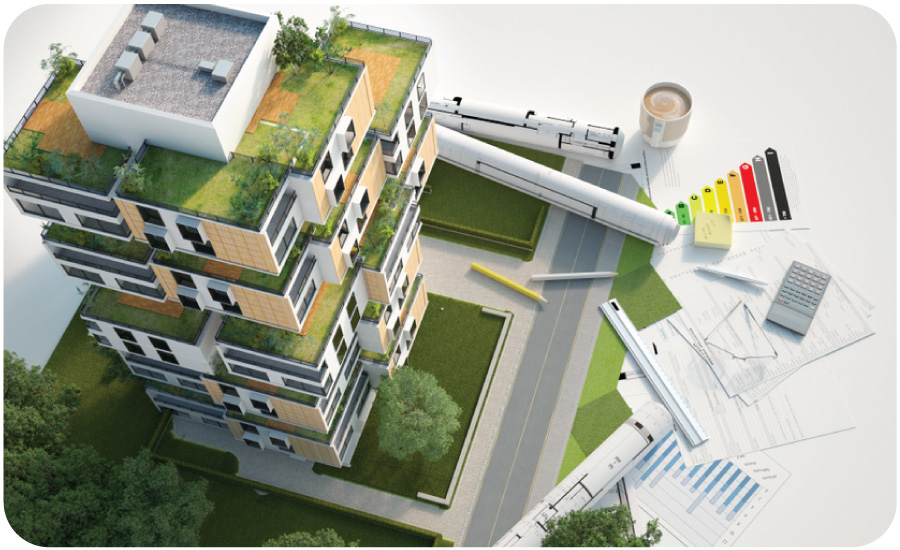The Problem
Sustainable development is the masterful balance of meeting our own needs without jeopardizing future generations’ ability to benefit from the same resources. Buildings have an undeniable impact on nature and our natural resources. From the construction to demolition, through occupation phases, building use up 30-40% of natural resources of developed countries, 40-60% of total energy and almost 40% of the world consumption of materials converts to built-environment.
Although its negative impacts are recognized, it remains difficult for building projects to make the sustainability shift. The main issues are the lack of practical information and the Capex (capital expenditure) bias. Indeed, many investors have lost faith in the sustainability agenda as the potential does not always translate into reality (greenwashing). Moreover, due to perceived high costs, building owners/promoters/ developers compromise on the sustainability budget during construction/renovation works to the detriment of the operational activities resulting in a huge Opex (operational expenditure) for owners/tenants.

The Solution: [S.Alt] Sustainable ALTernative Consultancy Ltd
S.ALT offers green consulting services throughout a building’s lifecycle from concept through construction, operations and demolition/refurbishment.
We are pioneering data-driven approach in this sector. We start by leveraging on BIM technology to digitise the built-environment; adopting a holistic approach during this process by integrating information from various stakeholders. We are then able to garner data on the potential building’s performance and establish together with the clients the sustainability targets. In parallel, with the implementation of our sister-company (EC3) own-IP IOT layer, real-world data is collected and used to finetune our assumptions and designs. The sustainable development goals are then balanced against financial constraints to create high performing, sustainable and comfortable buildings.
Finally, we use Leadership in Energy and Environmental Design (LEED) certification to track that the sustainability measures are complied with. LEED is a third-party certification which assesses the building’s performance against a wide range of sustainability criteria including energy, water, materials, health and comfort.

The AIM
To provide practical sustainable solutions. The development of smart buildings/infrastructure is leading to the incorporation of sustainability aspects namely with regards to performance and interaction with the environment. Our objective is to ensure that opportunities for sustainability are not missed.
Through green building consulting, IT enabled post occupancy evaluation and LEED certification, we are making sustainable development goals achievable and maximising positive impacts on the environment. We adopt a holistic approach to accompany building owners and users through all the cycle of a built-environment.
